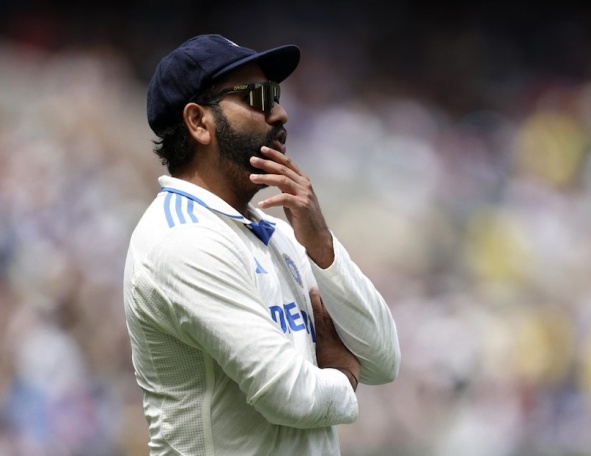Rohit Sharma’s retirement: A semi-tragic trajectory.
Once New Zealand clean-swept India in the Test series in October, the first team to achieve the feat on home soil, Rohit Sharma’s days as captain in the format seemed numbered. A loss of personal form hastened his goodbye from the format. He is an undisputed genius in the shorter version, a king of the 50-over format, a nawab of T20s, but in red ball, he was a commoner. 4,301 runs in 110 outings, an average of 40.57 and 12 hundreds — for someone with his dazzling gifts, determination and commitment, the figures capture the fits-and-starts nature of his long-form career.
When he burst forth onto the global stage, in white-ball cricket, he was touted as the new torchbearer of the Mumbai school of batting, the inheritor of a heritage polished by Vijay Merchant and Vijay Manjrekar, Sunil Gavaskar and Sachin Tendulkar. But he fell short of embellishing their lineage. There was always a semi-tragic streak to his Test career, from a much-deferred debut owing to injuries. Had he utilised his breaks after his sensational entry into Tests, he could have ended up with far more glittering numbers and enriched batsmanship in the format, as he had in the white-ball arena. He possessed the most classic of strokes, a repertoire that most batsmen could only dream of, serenity that is the hallmark of legendary players, a bonus second to judge the length of the delivery, and the capacity to transcend playing conditions. A late dazzle did redeem his career to an extent, but his talents largely remained unfulfilled.
Similar was his captaincy record in Tests. Whereas he would be hailed as one of the greatest in the white-ball sphere — he moulded the team into an exhilarating bunch that reclaimed the T20 crown after 27 years and reached the 2023 World Cup final without losing a game — his leadership in Tests had its flaws. He won exactly half of the 24 Tests he led — the twin peaks being the series wins over England and Australia in India — but couldn’t inspire his team to overseas series wins, like his predecessor Virat Kohli. The brand of captaincy was different — Kohli was all raging fire, Rohit had ice in his veins, the former wore his emotions on his sleeve, the latter resorted to one-liners and disenchanted shrugs. The Kohli comparisons were inevitable, and nowhere is the chasm deeper than in Test cricket. Whereas Kohli gritted his teeth and made his way to scale the peaks of batting, Rohit retreated to the foothills midway through the trek.
